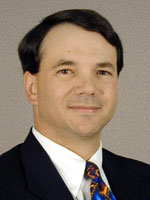Why Work in a Think Tank? Part 3
 If you are exploring careers in public policy, you should consider the policy-shaping role of think tanks. Think tank professionals can exert influence on public policy that is both enormous and indirect. To understand why, you must know how think tanks work. This is the third part in a series. Read the first here and the second here.
If you are exploring careers in public policy, you should consider the policy-shaping role of think tanks. Think tank professionals can exert influence on public policy that is both enormous and indirect. To understand why, you must know how think tanks work. This is the third part in a series. Read the first here and the second here.
Last time we discussed how ideas flow through the public policy process, but what force drives the ideas through their phases?
Hayek is said to have likened politicians to corks bobbing in the ocean, saying a think tank could be the current. A similar analogy would be that politicians are to think tanks as actors are to script-writers. Both analogies are gross simplifications and even exaggerations, but they help explain the effect of forces that are always there but hidden from view.
A good illustration of how think tanks influence the movement of ideas is called the Overton Window, a term my colleagues and I gave to a theory of change developed by the Mackinac Center’s late vice president, Joseph Overton. Joe observed that any collection of public policies within a policy area, such as education, can be arranged in order from more free to less free (or alternatively, from less government intervention to more). To avoid comparison with the left-right political spectrum, he arranged the policies from bottom (less free) to top (more free).
At any one time, some group of adjacent policies along the freedom spectrum fall into a “window of political possibility.” Policies inside the window are politically acceptable, meaning officeholders believe they can support those policies and survive the next election. Policies outside the window, either higher or lower, are politically unacceptable at the moment. If you shift the position or size of the window, you change what is politically possible.
Many believe that politicians move the window, but that’s actually rare. In our understanding, politicians typically don’t determine what is politically acceptable; more often they react to it and validate it. As noted, policy change follows political change, which itself follows social change. The most durable policy changes are undergirded by strong social movements.
When social and political forces bring about change, the window of political possibility shifts up or down the spectrum and can also expand to include more policy options or shrink to include fewer. The window presents a menu of policy choices to politicians: from their point of view, relatively safe choices are inside the window and politically riskier choices (or bolder ones, if you prefer) are outside.
Lawmakers who support policies outside the window are one of two kinds: true leaders who have the rare ability to shift the window by themselves, and politicians who risk electoral defeat because they are perceived as out of touch.
The Overton Window doesn’t describe everything, but it describes one big thing: Politicians will rarely support whatever policy they choose whenever they choose; rather, they will do what they think they can do without risking electoral defeat, given the current political environment shaped by ideas, social movements, and societal sensibilities.
The work of think tanks typically includes analyzing various approaches to public policy, publishing research and commentary, and speaking and conducting educational forums about the policy ideas. Quite often, the ideas are not yet politically feasible. But the Overton Window shows how those ideas can become public policy.
Moments of political opportunity are often times of crisis and rapid change. Another great 20th century economist, Milton Friedman, well understood the role of think tanks and intellectuals. He wrote in 1962:
Only a crisis—actual or perceived—produces real change. When that crisis occurs, the actions that are taken depend on the ideas that are lying around. That, I believe, is our basic function: to develop alternatives to existing policies, to keep them alive and available until the politically impossible becomes the politically inevitable.
The role of a think tank in creating public policy will never be as direct as that of an elected official, but it is no less real and no less important. In fact, think tanks may ultimately be more influential than public officials themselves.
Author John J. Miller wrote this about the influence of think tanks for Philanthropy Magazine in 2006:
Think tanks are perhaps best at creating conditions for success, as opposed to being directly responsible for the success itself. The manager of a baseball team … can make his team’s victory or defeat either more or less likely based upon choices he makes before anybody swings a bat. Likewise, it is nearly always impossible to draw a straight line from the product of a think tank to the enactment of a specific policy.
Political actors cannot operate independently of the idea-generators. The better you understand the way think tanks work, the better you will be able to advance worthwhile ideas to fruition through the public policy process.
Joseph G. Lehman is president of the Mackinac Center for Public Policy. This post is part of a series from the Institute for Humane Studies Public Policy Career Guide.
